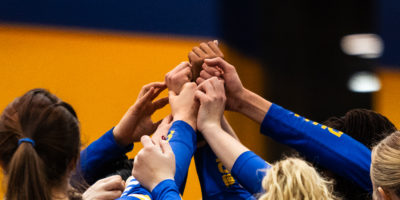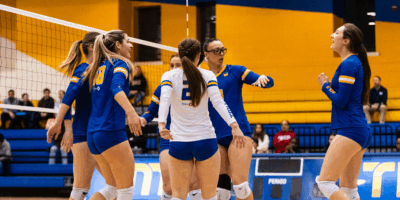By Vanessa Greco
Just beyond a quiet alcove in the heart of Yorkville, Sophie Nation spends two hours a week shopping for an A-plus grade. For about $1,000, the high school senior enrolled in an English course at Blyth Academy, a Toronto-based private school — even though she can earn the same credit at the public school she already attends full-time.
“It’s definitely a lot easier,” said Nation, who plans on applying to Ryerson for theatre or film. With looming university application deadlines, the 16-year-old adds that she can’t afford to have a bad mark on her transcript.
Credit shopping, or the practice of paying for a better grade, is a red-flag issue for educators and a last resort for university hopefuls. The Eyeopener filed a freedom of information request (FOI) and obtained inspection, complaint and general records for four Toronto private schools. The package of about 100 pages and revealed that over 60 per cent of students enrolled at each private school were taking Grade 12 credits. “Every year there are more and more students aware of it, talking about it and taking the credits,” said Joan Timmings, former president of the Peel District School Board’s Guidance Heads Association who has spoken out against credit shopping.
Starting this fall, when a student registered at a publicly-funded school earns a credit in private school a capital “P” will appear beside the grade on their Ontario Student Transcript (OST). According to Steve Robinson, Ministry of Education spokesperson, the “P” notation is meant to increase transparency. He said the Ministry is aware of credit shopping allegations at private schools, but doesn’t consider it an issue. However, July 2008 inspection records reveal that Toronto Collegiate Institute didn’t meet provincial curriculum expectations when assessing students. As well, the school failed to correctly maintain student transcripts. A year earlier, the school failed to enforce attendance standards and the minimum 110 hours for course completion. Ministry records describe the school as “a secondary school that offers credits mostly to students attending publicly funded schools.” In May 2008, over 88 per cent of their student population was taking Grade 12 credits. The school’s website advertises reasons to attend. One of them is, “Earn your grades and enter your favourite university/college.”
The Ministry of Education hasn’t had to revoke a private school’s credit-granting ability in the last three years, according to Robinson. There are over 900 private schools in Ontario. While only some credit-granting private schools are accused of selling grades, none are exempt from the “P” notation. This includes Hassan Mirzai, principal and owner of FutureSkills High School. He drafted a letter to the Ministry opposing the new notation. “The public will assume that it is a warning — similar to the ones placed on restaurants,” he wrote, adding that the capital “P” might eventually put some schools out of business. Instead, Mirzai recommended more frequent inspections to weed out irresponsible schools. In May 2006, an inspector found that students at FutureSkills weren’t being assessed consistently by teachers. At the time, out of the 92 students enrolled, 80 were taking Grade 12 credit courses.
Ryerson’s registrar Keith Alnwick, who oversees admissions, believes the university won’t treat transcripts with a “P” notation differently. “We’ve always said we’re going to take every grade at face value,” he said. “On what basis can we argue that a grade is not valid?”
— With files from Carys Mills











Leave a Reply